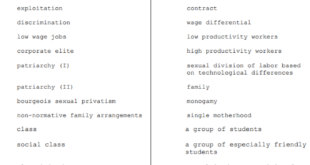from Peter Söderbaum I am a professor emeritus with many years of experience of the functioning of university departments of economics and other social science disciplines, such as business management. As has already been made clear I consider the close-to-monopoly position of neoclassical theory at university departments of economics as a major problem in relation to aspirations of sustainable development. The two “facts” that (a) values are necessarily involved in research and education...
Read More »Economics Textbooks
from Steve Keen Thomas Kuhn once famously described textbooks as the vehicle by which students learn how to do “normal science” in an academic discipline. Economic textbooks clearly fulfil this function, but the pity is that what passes for “normal” in economics barely deserves the appellation “science”. Most introductory economics textbooks present a sanitised, uncritical rendition of conventional economic theory, and the courses in which these textbooks are used do little to counter...
Read More »Crypto-crash: graph
Source: Forbes
Read More »Formalizing economic theory
from Lars Syll What guarantee is there … that economic concepts can be mapped unambiguously into mathematical concepts? The belief in the power and necessity of formalizing economic theory mathematically has thus obliterated the distinction between cognitively perceiving and understanding concepts from different domains and mapping them into each other. Whether the age-old problem of the equality between supply and demand should be mathematically formalized as a system of inequalities or...
Read More »Weekend read – MMT, post-Keynesians and currency hierarchy: Notes towards a synthesis
from Luiz Alberto Vieira and current issue of RWER Introduction The current moment seems favorable to debate and potential reconsideration of theoretical systems, a situation derived both of developments in the analysis of public financing and the nature of money, but also, largely, due to the particular political and social circumstances observed in many countries. US hegemony is in crisis, as its industrial might decreases and is put in question by China’s development. The Asian country...
Read More »The threat of a pharma-dictatorship
This is an extract from Norbert Häring‘s International Health Regulations: A big step toward a health dictatorship is imminent 12 May 2022 What the U.S. has in mind here is an authorization for the WHO to immediately take the reins out of the hands of national governments in the event of an actual or alleged health risk from a pathogen and to be able to determine the assessment of the situation and the countermeasures. The US and their allies in this, the EU and Switzerland, are home to...
Read More »Gödel and the limits of mathematics
from Lars Syll irrelevant model abstractions with no bridges to real-world economies Gödel’s incompleteness theorems raise important questions about the foundations of mathematics. The most important concern is the question of how to select the specific systems of axioms that mathematics is supposed to be founded on. Gödel’s theorems irrevocably show that no matter what system is chosen, there will always have to be other axioms to prove previously unproven truths. This, of course, ought...
Read More »Can you think of something snappier than “Understanding the Economy – A Learning System”?
The 1300 words below are extracted from an email that Neva Goodwin wrote and copied me into. It outlines a large new project initiated by the World Economics Association, but which will include numerous other organizations opposed to the dominance of traditional economic thinking. However, the extract’s first sentence is misleading because it is Neva’s and Pratisha’s names that should be mentioned first since they are the project’s primary sources of creative energy. And then there is...
Read More »The magnitude of the required reductions
from Ted Trainer and current issue of RWER It is not commonly understood how large the reductions would have to be to enable a society that is globally sustainable and just. The World Wildlife Foundation’s Footprint measure (2018) estimates the average Australian per capita use of productive land at 6–8 ha. Thus, if the 9–10 billion people expected to be on earth by 2050 were to live as Australians do now, up to 80 billion ha of productive land would be needed. But there are only about 12...
Read More »Economics phrasebook
from Lars Syll In 1990, two economics PhD students at the University of Chicago, Jeffrey Smith and Kermit Daniel … composed “Economics to Sociology Phrase Book” in order, as they put it, “to help economists adjust their way of speaking in a manner that will make it comprehensible to Sociologists” … Concerning economics terminology, by the way, one can see that not much has changed since then. Oleg Komlik
Read More » Real-World Economics Review
Real-World Economics Review


